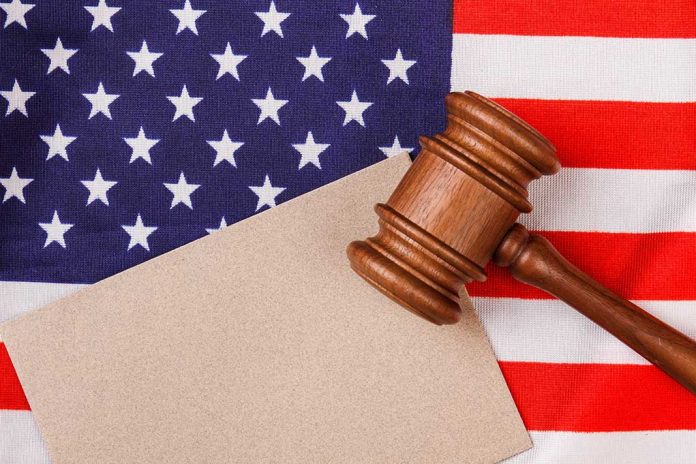
President Biden’s historic clemency actions raise concerns about justice system integrity and potential abuse of power.
At a Glance
- Biden commuted sentences for 1,500 individuals and pardoned 39 others, marking the largest single-day clemency act in modern history
- The commutations apply to those who served at least one year on home confinement during the COVID-19 pandemic
- Biden’s pardon of his son Hunter has sparked controversy, with only 20% of Americans approving
- Critics argue these actions undermine the justice system and may set a dangerous precedent
Biden’s Unprecedented Clemency Move Raises Eyebrows
In a move that has sent shockwaves through the political landscape, President Joe Biden has taken an unprecedented step in granting clemency to nearly 1,500 individuals. This action, which includes commuting sentences for approximately 1,500 people and pardoning 39 others, marks the largest single-day act of clemency in modern American history. While the administration touts this as a step towards criminal justice reform, many conservatives view it as a potential overreach of executive power that may undermine the very foundations of our justice system.
The bulk of these commutations apply to individuals who have served at least one year on home confinement during the COVID-19 pandemic. This decision has raised questions about the criteria used for selection and whether it truly serves the interests of justice. Critics argue that such broad-stroke clemency actions may diminish the deterrent effect of criminal sentences and potentially endanger public safety.
Controversial Pardon of Hunter Biden
Perhaps the most contentious aspect of Biden’s clemency actions is the pardon granted to his son, Hunter Biden. This move has been met with widespread disapproval, with only about 20% of Americans supporting the decision. Hunter Biden, who was convicted of federal gun charges and pleaded guilty to federal tax charges, received a pardon that covers offenses from January 1, 2014, to December 1, 2024.
“America was built on the promise of possibility and second chances” – Biden
This statement from President Biden, while noble in sentiment, rings hollow when applied to his son’s case. The pardon of Hunter Biden has been criticized as a clear abuse of presidential power, seemingly designed to protect a family member from the consequences of his actions rather than to serve any broader purpose of justice or rehabilitation.
Undermining the Justice System?
While the White House argues that these clemency actions promote equal justice and provide second chances, there are serious concerns about their impact on the integrity of the justice system. By bypassing the normal judicial process, these pardons and commutations may send a message that political connections can trump the rule of law.
“One thing the president believes is to always be truthful with the American people.” – Karine Jean-Pierre
This statement from the White House press secretary stands in stark contrast to the administration’s actions. The lack of transparency surrounding the criteria for these clemency decisions, particularly in the case of Hunter Biden, raises serious questions about the truthfulness and motivations behind these actions.
Setting a Dangerous Precedent
Biden’s sweeping clemency actions set a concerning precedent for future administrations. By granting such a large number of pardons and commutations in a single day, there is a risk of normalizing the use of presidential clemency as a tool for political gain rather than justice. This could lead to a scenario where each new administration feels compelled to undo the judicial decisions of its predecessors, creating instability in the legal system.
As the debate over these clemency actions continues, it is crucial for Americans to consider the long-term implications of such decisions on our justice system and the rule of law. While second chances are an important part of our society, they must be balanced against the need for accountability and the integrity of our legal institutions.






















